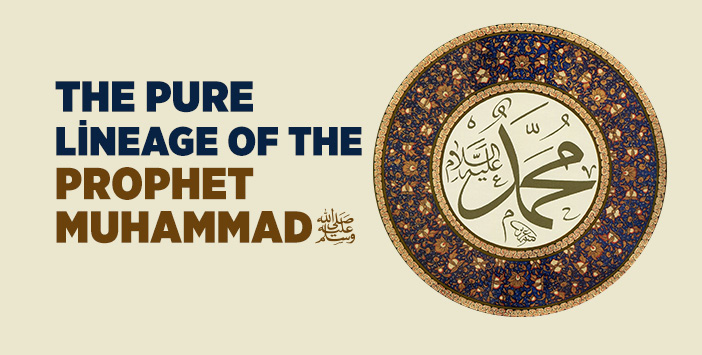How did Abdullah and Aminah the parents of prophet Muhammad get married? The marriage of Abdullah and Aminah, the parents of the prophet…
Before the advent of Prophet Muhammad -upon him blessings and peace-, belief in One God was all but lost and the Kaabah was filled with idols that belonged to different tribes. The well of Zamzam had also been lost. One day while asleep near the Kaabah, Abdulmuttalib, the grandfather of Blessed Prophet -upon him blessings and peace-, saw a dream where he was shown the font of Zamzam which he was commanded to dig. But when he made an attempt to dig in hope of bringing the dream to fruition, he was prevented by the people of Quraysh, on the grounds that it would be horrendous to dig anywhere near the Sacred Temple.
Since he had only one son to help him, Abdulmuttalib was apprehensive about having no power to resist them. He therefore prayed to Allah, glory unto Him, and made a nadhr, a vow, that he would sacrifice one of his sons if the Almighty gave him ten to help him against his enemies in this cause.
Upon seeing some miraculous signs transpire in Abdulmuttalib, the Meccans softened after a while and gave him permission to dig the well. He eventually went ahead to dig and unearthed the font of Zamzam. Years later his prayer was also granted, where he was given twelve sons by the Almighty, who all grew up to be strong, protective men. Abdulmuttalib was then reminded of the vow he had made years ago in his dream. Uneasy, Abdulmuttalib first sacrificed a ram then a cow, only to be asked each time for a greater sacrifice, until being finally reminded at the end:
“You had vowed to sacrifice one of your sons!”
Upon this, Abdulmuttalib gathered all his sons around him and explaining his dream to them, he invited them all to submit to what the dream compelled him to do. In full submission, they said:
“Do what you have to do to fulfill your vow!”
To fulfill his vow, Abdul-Muttalib then decided to cast a lot to determine the son he was to sacrifice, pleading the Almighty as he did:
“O Lord! Here I am, casting lots to show I am sticking to my word. Now please, let me draw the name you want to be drawn!”
The lot was cast and it was Abdullah’s name that came out. Though Abdullah was the dearest to him, Abdulmuttalib did not flinch from carrying out the verdict of fate. Afraid that it could initiate an evil tradition however, the Meccans strongly opposed Abdulmuttalib, persuading him to consult a knowledgeable man. So they all went to a wise man and told him the story.
“What is the blood money for a person killed?” the knowledgeable man asked.
“Ten camels”, they replied.
The knowledgeable man then advised the Meccans to cast lots between Abdullah and ten camels, and if it just happened that Abdullah’s name was drawn yet again, to add ten more camels to the bloodmoney until a camel was drawn from the lot.
So they cast lots, as advised, between ten camels and Abdullah. Abdullah’s name was repeatedly drawn from the lots until the number of the camels reached a hundred, which is when the name of camels was eventually drawn. The family was jubilant but Abdulmuttalib was still not satisfied, thinking it would be unfair to ignore the fact of drawing Abdullah’s name ten times as opposed to just the one lot of camels. He therefore repeated another three times the lot between Abdullah and a hundred camels, and much to the satisfaction of Abdulmuttalib, the lot of the camels were drawn each time. Everyone present glorified the Almighty for this fortunate result. Abdulmuttalib then sacrificed all the camels, distributing their meat in charity.[1]
In Islamic Law today, the blood money for a person killed is either a hundred camels or their worth, a jurisdiction that is derived from this very precedent. In memory of the near sacrifice of his father and his great grandfather Ismail –upon him peace-, the Noble Prophet -upon him blessings and peace- has stated:
“I am the son of the two sacrifices.” (Hâkim, II, 609/4048)
The Messenger of Allah -upon him blessings and peace- was thus given the name “the son of two sacrifices.”[2]
Abdullah was the most handsome man in his tribe, surpassing them all also in intelligence and moral perfection.[3] All the girls of Quraysh desired to marry him. One of them was the sister of Waraqa ibn Nawfal, who seeing the light on the forehead of Abdullah, realized that it belonged the light of the impending Prophet. She hence wanted to be the mother of the Prophet impatiently waited for, even offering the young Abdullah a hundred camels as dowry.[4]
A year before “the Year of the Elephant”, Abdulmuttalib asked, for his son Abdullah, the hand of Aminah, the daughter of Abdimenaf, the best of Quraysh in terms of honor and ancestry. The proposal was welcomed and their marriage soon took place. Aminah’s ancestry, through her father Wahb ibn Abdimenaf, reaches Zuhrah, the son of Kilab, the son of Murrah, whereby it merges with the ancestry of the Abdullah and the Hashim clan, with Kilab, whose son Zuhrah was the brother of Qusay.[5]
When the Blessed Prophet -upon him blessings and peace- was conceived, the light on the forehead of Abdullah passed on to Aminah.[6]
Source: Osman Nuri Topbaş, The Prophet Muhammed Mustafa the Elect, Erkam Publications
[1] See Ibn Hisham; I, 163-168; Ibn Saad, I, 83-85; Hakim, II, 604/4036.
[2] See Hakim, II, 604/4036.
[3] See Halabî, I, 51-62.
[4] See Ibn Hisham, I, 168-169.
[5] See Ibn Saad, I, 59-60.
[6] See Ibn Hisham, I, 170.




